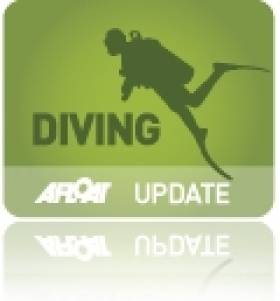Displaying items by tag: Irish Cave Rescue Organisation
Brian MacCoitir of the Irish Cave Rescue Organisation Recalls Downpatrick Head Rescue
There have been many extraordinary rescue efforts in Irish waters over the past year. One which few involved will ever forget lasted 22 hours, close to Downpatrick Head in north Mayo this past September.
It took 14 hours alone to set up the gear to reach the 40-year-old caver trapped at the back of a sea cave, and it involved some 40 members of the Irish Cave Rescue Organisation (ICRO), with support from four Coast Guard units and the RNLI Ballyglass lifeboat.
 Cave rigging - (above and below) the scene at Downpatrick Head in Co Mayo where the Irish Cave Rescue Organisation rescued the individual, supported by the Coast Guard Units from Killala/Ballyglass/Killybegs/Achill, the Ballyglass RNLI Lifeboat, National Ambulance Service, Civil Defence, County Fire Service and An Gardai Siochana, including the Gardai Water Unit
Cave rigging - (above and below) the scene at Downpatrick Head in Co Mayo where the Irish Cave Rescue Organisation rescued the individual, supported by the Coast Guard Units from Killala/Ballyglass/Killybegs/Achill, the Ballyglass RNLI Lifeboat, National Ambulance Service, Civil Defence, County Fire Service and An Gardai Siochana, including the Gardai Water Unit

Coincidentally, it was close to where Ballina diver Michael Heffernan lost his life during a cave rescue in October 1997 - a loss remembered recently at a memorial event attended by Garda Commissioner Drew Harris at Lacken pier.
 The Irish Cave Rescue Organisation team at the successful finish of the Downpatrick Head rescue in north Mayo in 2022
The Irish Cave Rescue Organisation team at the successful finish of the Downpatrick Head rescue in north Mayo in 2022
Brian MacCoitir, ICRO warden for the southwest region, held an audience in Tully’s Bar spellbound recently when he outlined the details of the multi-agency effort during one of the Kinvara adventure talks in Co Galway.
MacCoitir spoke to Wavelengths, and first recalled how the experience of the casualty as a caver was key.
 Exiting the free-dive sump at Downpatrick Head
Exiting the free-dive sump at Downpatrick Head
Body of Cave Diver Recovered After Six Days
A British rescue team has finally recovered the body of the Polish man who died while cave diving in Co Galway, some six days after he was first reported missing.
As previously reported on Afloat.ie, 34-year-old expert cave diver Artur Kozlowski failed to re-emerge from a dive near Gort on 5 September.
His body was located last Tuesday evening in the deepest section of the cave, some 52m below the surface.
But it took till Saturday for a team of cave rescue experts to safety recover the body from the narrow passage nearly 1km into the cavern.
Three British caving experts worked with the Irish Cave Rescue Organisation and gardaí on the dangerous operation.
The Speleological Union of Ireland offered its condolences to Kozlowski and his family, who have travelled to Ireland.
In a statement, it said: “This is an unforgiving sport requiring extreme mental and physical fitness, but it was Artur’s passion.”
The Irish Times has more on the story HERE.






























































